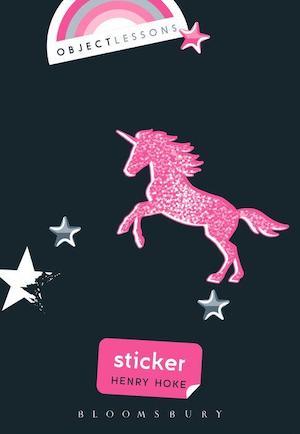Welcome to Close Reads! In this new series, Leah Schnelbach and their guests will dig into the tiny, weird moments of pop culture—from books to theme songs to viral internet hits—that have burrowed into our minds, found rent-stabilized apartments, started community gardens, and refused to be forced out by corporate interests.
This time out, author Henry Hoke recalls a chance encounter with The Devil—not at a crossroads, but in the pages of a suspiciously moralistic paperback.
The Waldenbooks at Fashion Square Mall in Charlottesville, Virginia was my personal portal to Hell.
If Mom saw me reading, she was overjoyed. If she saw me playing video games, she was angry. She had bought the rhetoric that my brain was rotting, could sense the deterioration. There could never be peace in the house if I was gaming.
I read all the time, but if you made tween me choose between video games or books for the rest of my life, I’d welcome illiteracy. Arcades were the moth light for us raggedy pubescents. At the pizza place or the bowling alley, eating crap and rolling balls was a bland precursor to the moment we’d receive a stack of quarters and enter the dark blinking core of our desire, where the games lived. The change didn’t last long. We died so much in our attempts to get better.
When there were no quarters, we would play “game over”—pretending to play the arcade game while the demo ran and the words GAME OVER blinked on the screen. My little brother called all arcade games “game over” saying I want to play “game over”, but if I put quarters in and gave him control, he’d royally fuck it up.
Mom had a Waldenbooks discount card, so we bought all our books there. I needed something new to read on our regular ten-hour drive to Alabama to visit extended family. This was the tail-end of my horror kick, stepping-stone paperbacks about teens getting stabbed at beaches and proms, the sort of teens I’d never be, dying horribly, their bright blood forming letters on the glossy covers.
One cover drew me in: a deep red background and the restrained image of an arcade cabinet, a boy passed out against it, his hand on the joystick: GAME OVER in Atari-green letters on the screen.
Joseph Locke’s Game Over was my choice for the road trip. It looked cheaper than the other titles, and was, but I’d read nearly everything else on the YA death shelves. The returns were diminishing, as was my youthful glow. I’m getting too old for this, I thought. Game Over would be my final murder book for young adults.
I didn’t read any of it en route to Alabama. We listened to Mom’s audio books instead. We blasted Nanci Griffith. I pressed my finger to the car window glass, imagining I was running along the highway crash guards, leaping over the gaps as they zipped by, like Sonic the Hedgehog.
Because I was a young adult, I now got my own room upstairs at Granmamma and Grandpappy’s house. My brother slept in the kid room next door, in the largest of a trio of beds that decreased in size. I told him the smaller ones were for child ghosts. Through the wall, alone in my big bed, I was the haunted one. I cracked Game Over and read the first chapter. A guy smoking a cigarette on a fire escape gets eaten by a monster that swoops down from the sky. It scared the living fuck out of me.
Nightmares followed and I switched on the light, but the light didn’t fix anything. There was a strange orange bird-thing dangling from the ceiling vent above me, a plastic relic of the ‘70s. It swayed back and forth, threatening to become a monster the minute I closed my eyes.
I went downstairs to the TV room couch and did the only thing I could think of to banish my fear: keep reading.
After the monster murder, a new arcade called Hades opens on the site. It’s everything the local high school kids crave. Blinking violence and noise. The friendly proprietor, Mr. Blacke, helps steer each teen to their perfect cabinet. Here, says Mr. Blacke, to some dejected, bullied, or dumped guest, This is the game for you. The twist is that Mr. Blacke is the goddamn Devil. Or the twist is that the whole book is a YA knockoff of Stephen King’s Needful Things, if you happened to have read that. I had not.
As the teens of town play the arcade games at Hades, over-the-top violent games like “DecapAssault” and “Roadkill,” they hallucinate that the enemies in-game are their real-life bullies or spurners. Then, of course, they go and do actual killing, screaming the name of the influencing video game as they murder their peers.
This was all a not-so-subtle weighing in on the question of the day—mirroring the uproar around Mortal Kombat—do violent video games incite players to commit acts of violence? Game Over’s answer was a resounding Yes. The Columbine massacre lurked around a corner to explode the conversation. But this was the naïve before.
I couldn’t stomach Mortal Kombat, since I’d first seen a friend knock some poor digital ninja into a spike pit for impalement. And in the lean years following my parents’ divorce, Dad mostly took us to Sears instead of the arcade, where we could play the free demos on the display Sega. I didn’t entirely disagree with Game Over’s thesis. Like most horror marketed to teens under the guise of cautionary tale, the book exploited the pornographic satisfaction of cathartic revenge. I connected with the murder-coerced outcasts more than the protagonist. If Mr. Blacke owned Sears, I’d dye my hair blue and spike it up and roll into school super-fast, leaping on [my nemesis] the dickhead percussionist while screaming SONIC.
Granmamma came in to eat breakfast and sit in front of the TV. She didn’t ask about what I was reading. I continued my descent into 16-bit Hell.
Buy the Book


Sticker
The protagonist—Jim or Joe or something—was woefully hetero. He and his girlfriend regularly sought the advice of their pastor. Their pastor. This was an early warning sign. Sure, we went to church with Mom on Sundays like good sons. We had friends there, sang in the choir. But saying “grace” before dinner was the extent of my personal Protestantism. I tried to imagine a reality in which I’d consult our pastor. It was too supernatural to fathom. A new horror entered my head, far more frightening than the brutal teen murders: I was reading a Christian book. At the climax, Jim or Joe enters the video game realm to confront Mr. Blacke, and in this final showdown he calls upon the righteous power of God, greater than any devilish weapon, and slays the Beast.
Maybe he and his girlfriend have a pizza party with the pastor in the rubble of the now-magically-demolished Hades. I don’t remember because I blacked out with that feeling you get when you’re duped into scripture. I stuffed the book in my duffel like it was a cursed object, destined to yellow like the bibles in motel drawers.
On the long car trip back north, I tried to reconcile the warring forces inside me, sick from the book’s moralizing, its holy bait-and-switch. Was I desensitized by every onscreen kill? Sure. But if religion was the only alternative, the only way out, I welcomed permanent Hell. More than the killing, it was the near-endless dying I found vital. Chunks of faith fell into the spike pit to be impaled. In video games there are secrets you can only learn by dying.
My arcade fixation drove me to Game Over. Game Over drove me away from God. Mom drove me back to Fashion Square Mall.
The bookseller at Waldenbooks that day was probably not Satan. He was probably just some guy. I handed him Mom’s discount card and he handed me the first trade paperback of Preacher.
Henry Hoke wrote The Book of Endless Sleepovers, the story collection Genevieves, and The Groundhog Forever. His work appears in The Offing, Triangle House, Electric Literature, Juked, and the Catapult anthology Tiny Crimes. He co-created and directs the performance series Enter>text. Sticker, a memoir, is forthcoming in January 2022 from Bloomsbury’s Object Lessons.










